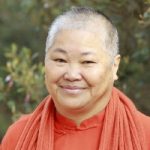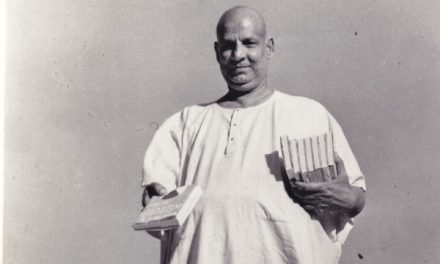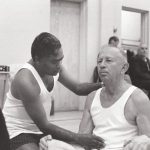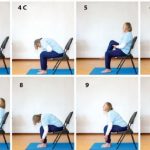 From Karma to Dharma: The way to peace and true happiness
From Karma to Dharma: The way to peace and true happiness
By Swami Sitaramananda
Yoga teaches us self-effort to control the mind and be conscious and wise about our choices.
Karma, destiny and self effort
In life, we always have free will to choose even though these choices are limited. It is said that the present life and its circumstances are the result of past lives’ thoughts and actions. The present thoughts and actions come from past lives according to the law of karma – the law of action and reaction.
 What happens today is already predetermined even though we do not know from when and how things will manifest. The challenges of this life are opportunities for growth and for liberation in the future. We might have free will, but we need to think well about our choices so that what we do leads us to peace and happiness and not to suffering.
What happens today is already predetermined even though we do not know from when and how things will manifest. The challenges of this life are opportunities for growth and for liberation in the future. We might have free will, but we need to think well about our choices so that what we do leads us to peace and happiness and not to suffering.
When we are acting out of past habits and are powerless to change our character and attitudes, we are bound and not free. Yoga teaches us self-effort to control the mind and be conscious and wise about our choices. This will eventually free us from the tendency to reproduce the same mistakes.
Managing karma implies that:
1. We care about our present duty
2. We focus on becoming fully developed
3. We accept all tests and challenges as being temporary.
Some karmas are pleasant and some are not. We reap the fruits of the seeds we grow. Good actions bring their own results and bad actions bring their own consequences. There is no accident or haphazard events in this world.
The root cause of karma resulting in life’s struggle
If we enjoy peace now, it is because we have contributed to the peace of someone in the past. If we suffer from loneliness, it is because we have created isolation for somebody. If we face a situation that seems like a choice between being violent or disrespectful to win or being compassionate and humble and lose, it is because in the past when confronted with similar situations we have chosen the former. We are experiencing a similar situation again as a chance to make a different choice.
Similarly, if we have the possibility to gain something by lying or manipulating a situation, we need to choose honesty and straightforwardness instead and find strength in having a good character and being ethical. Genuinely helping another person to attain more material comfort in their life will manifest in ours as a boon of good fortune. Karma does not work differently at work and in private life. By improving your character at work you will improve your happiness at home.
By improving your relationships at home you will be more successful in your business as your energy will flow better. Cultivating contentment with what you have already been given releases you from the constant restlessness of desiring more. Giving freely and charitably results in greater wealth coming your way.
Stinginess, conversely, brings with it a sense of lack, of never having enough. Maintaining pure intentions, which come from your heart, brings lasting peace of mind; whereas sometimes following the head and at other times the heart will bring confusion, fragmentation, and problems in the future.
Seeking inspiration from wise people and avoiding back-biting and gossiping will attract supportive people that will be key to your success. Conversely, negativity, divisiveness, bringing your competitors or co-workers down will come back to you in the form of stress and fear. Inflexibility and lust for control bring to you more situations that you can’t control.
Letting go of the need for control and realising that you may not be aware of subtle forces at work gives insight into the interconnectivity and self-regulating nature of creation. Everything is, in fact, perfect; we just fail to see it. Cultivating belief in this truth brings great peace and relaxation.
Stopping the wheel, turning karma into dharma
Karma can be understood and released. The knowledge of how we create karma allows us to realise that we live our limited and separated life increasing our karmic debts as day by day. With every incident and encounter, we keep reacting from our ego. Thus, we become victims to the results of the past, and follow helplessly our destiny, confirmed in our idea of separation and limitation.
We accept life as misery and often try to escape in addictions or a life of crimes, of numbness, carelessness and selfdestructive habits. More material gain produces more stress and less peace. Growing spiritually requires that we turn our karma into dharma. Dharma is duty. It is transforming the same binding action or desire into an unselfish duty. It means putting the ego at the service of others and the greater good.
Not thinking of ourselves first and only, but sharing in everyone’s happiness, being an honourable contributor to the betterment of society, and opening oneself to the whole of creation will turn karma into dharma. It will improve life in all its aspects. The result is not necessarily immediate; patience and knowledge of how karma works will see you through to the benefits.
Dharmic life brings happiness
Happiness comes from peace of mind and unhappiness comes from restlessness of mind. Yoga teaches the practice of restraint of thought waves to find contentment and break through the karmic accumulation. In our pursuit of happiness, we made many mistakes, and created endless karmas. In our feverish world of competition, where everybody is looking for answers outside, we believe that happiness is in material possessions and sensual comforts.
We think that our happiness has to be at the expense of someone else’s happiness, so we compete and make sure we get the best part of the cake. We fear that someone else’s happiness is at our expense, and become jealous and envious. We believe in the world of quantifiable objects and think that material things are limited, that we need to secure them not to lack. We become greedy, stingy, and inconsiderate. In a world dominated by business and finances, we believe that the value of a thing depends on its financial value and that all is measured by money. We reduce life to business transactions.
We do not see the intangible, the spiritual, the sublime and the divine. We believe in external success and not in inner peace as success, and are thus pulled in all directions by our ambitions and desires. It seems that there is no end to our desires. When one is fulfilled, ten others come to assail us. We want always more: more name, more fame, more success. We are in the “me” and “mine” egoistic generation. There is no place for the “we” and “thine”, the collective and the community.
Yogis assert that in order to find happiness, we need to achieve peace of mind first. This means that we need to recognise that there is no end to desires, that the objects desired are in fact our own projections and illusions. We eventually learn to turn within, avoid the dual tendency of attraction and repulsion, always running towards something or running away from some – thing. This is when yoga and meditation come into our life, as we develop a taste for peace and understand that it comes from within.
We decide to consciously make an effort to be calm and focused within. When we are content, we have more chance to live in the present. The mind is less agitated and stops escaping in the past and the future, missing out the solid present. When peace of mind is established, we are able to perceive our true nature which is happiness itself.
Yoga teaches us to calm down, breathe, and turn inward to renew our sense of self and purpose.
Detachment is the key to releasing karmic debts and achieving freedom
The key to improve our lives, work, and relationships lies in stepping back and re-evaluating who we are and what our priorities are. Stepping back, or detachment, is being aware of oneself. This means not losing the big picture for the details. We need to continuously pay attention to where we are compared to the whole journey of life and see if we are still on track for true happiness.
Yoga teaches us to calm down, breathe, and turn inward to renew our sense of self and purpose. The problem about detachment is that people tend to think that if they detach they will miss something, and that life will pass them by, leaving them in a worse position than before. However, nothing is lost by turning inwards.
On the contrary, this will give us greater insights into our strengths and weaknesses, which can be applied in our life’s situations. The problem is that we tend to undervalue the importance of looking inward and relaxing the mind to connect to ourselves.
How can Yoga help?
Classical yoga gives equal value to self-effort and relaxation. In a classical yoga class, students learn to come into a posture with control, hold it and breathe deeply to dissolve discomfort or tension, and come out of the posture with control. There is relaxation and breathing in between the postures and an emphasis on self-awareness throughout. Postures lead to meditation.
Regular practice will help us to slow down and realise that seeking happiness outside of ourselves leads us nowhere. Yoga shows us a way out.
Swami Sitaramananda Yoga Acharya, is a senior disciple of Swami Vishnudevananda. She is the director of the Sivananda Ashram and Centres on the West Coast, USA and the Sivananda Centres in Vietnam. www.sivanandayogafarm.org






























